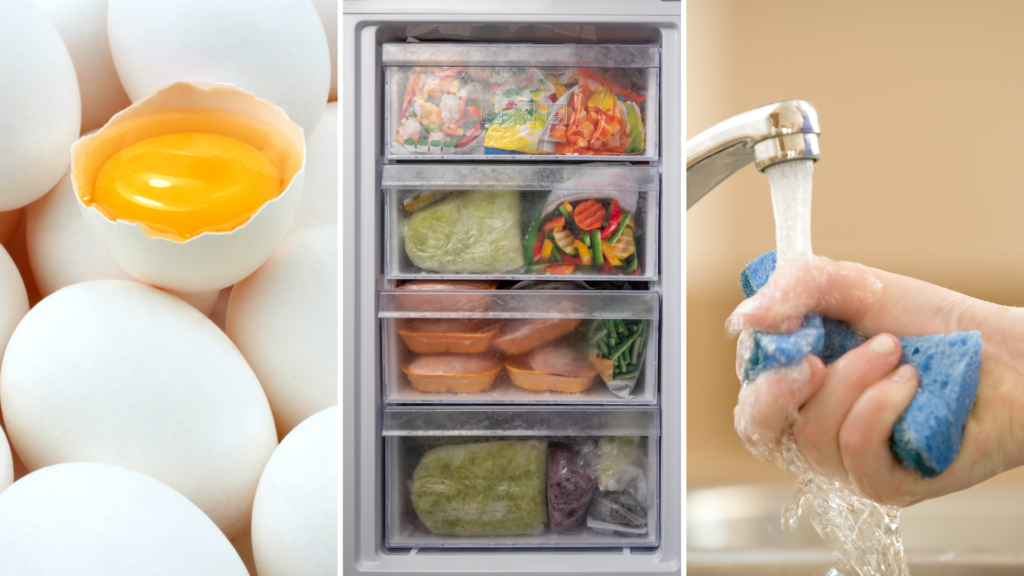With energy prices on the rise, the most expensive ingredient in your recipes can be the way you cook. As a result, there is a growing culinary trend centred on raw food. The popularity of cooking without electricity or gas has led to health experts warning of the dangers of food poisoning.
We look at the three most important precautions to take to avoid getting sick.
Separate egg whites and yolks with caution
As a child, we learn to break an egg on the edge of a bowl and then let the egg white run out by holding the yolk and transferring it from one shell half to the other. But this well-known technique is not hygienic.
If one of the shells is contaminated, for example by salmonella, the risk that the egg yolk is also contaminated becomes more likely. Better to break the egg and then catch the yolk with a tablespoon. If the recipe you are following is for a raw dish (various cocktails or steak tartare use raw egg), it is also important to use an extra-fresh egg.
No, freezing does not kill bacteria
A deep-seated kitchen myth is that extreme cold destroys microbes. In fact, freezing only puts the bacteria to sleep and prevents their development. But it does not kill them.
However, freezing can protect us from parasites that might be present in raw fish. According to the recommendations of the French Ministry of Agriculture and Fisheries, wild fish must be frozen for at least seven days if it is intended for raw consumption.
Change your sponges and cloths regularly
You should change sponges and dish towels much more often than you think. Kitchen cleanliness is a very important part of raw meal preparation. Key to this is ensuring that sponges and cloths are clean when sanitising the kitchen area.
According to the Consumer Safety Commission, a sponge is dirty after two days of use. At the end of this period, around 50 billion bacteria per square centimetre can be found on a used sponge. A 2017 study found that there were more bacteria in a kitchen sink than in a toile, primarily because of unwashed sponges.
Related News
- Interactive: How much are your home appliances costing you?
- Why are prices rising? Europe’s energy crisis explained
Ideally, you should dedicate a sponge to each household task, that is to say one to clean the worktop, another for the dishes. The Consumer Safety Commission recommends that sponges are disinfected with white vinegar and wrung out carefully. And above all, the sponge should not be kept on a surface that retains water.
Also remember to regularly change your dish towels. In 2018, scientists at the University of Mauritius demonstrated that after a month of use, a cloth could contain coliforms, such as the famous bacterium Escherichia Coli which motivates food product recalls when it infects them at the time of manufacture or packaging.
In 14.3% of cases, researchers had even identified Staphylococcus aureus – responsible for food poisoning.

